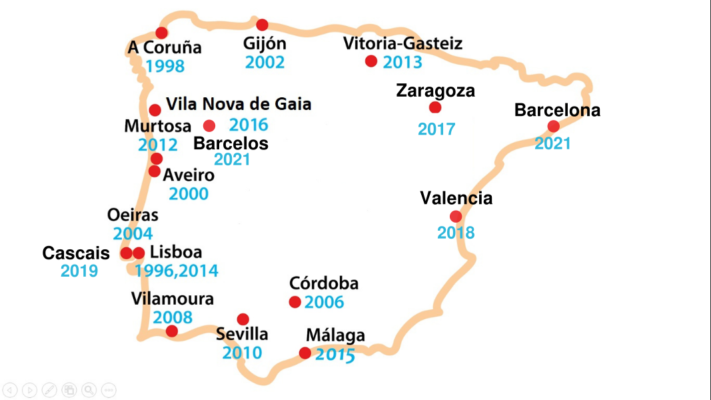Bicycles have been using for more than pedaling and one of the alternative uses is helping people lives. I wrote about Soterranya and its impressive work by recovering bikes in bad state, fixing them and donating them to persons who need them. At the time of writing this post, Soterranya has given more than 3,000 bikes and actively participated in the recovery from the Valencia, Spain, DANA in the next months after October 2024 in those villages more negatively affected.
Another inspiring example is BSF (Bicicletas Sin Fronteras, Bicycles Without Frontiers) (https://www.bicicletassinfronteras.org/, in Spanish). It was born in 2015 and has donated more than 2,700 bikes to the Senegal population. Its aim consists in helping local people by giving bicycles to students, instead of walking kilometers to school, to improve their academic performance, promote employment and strengthen communities to them. Their baobikes system is locally managed. All in all, the most complicated was to change the white-man mentality, and understand and adapt to their local culture. Romà Boulé, the BSF responsible, affirms that they have received requests from other countries, but he remarks the need of local entities which know the area, and have enough technical knowledge and economic support for such a project.

